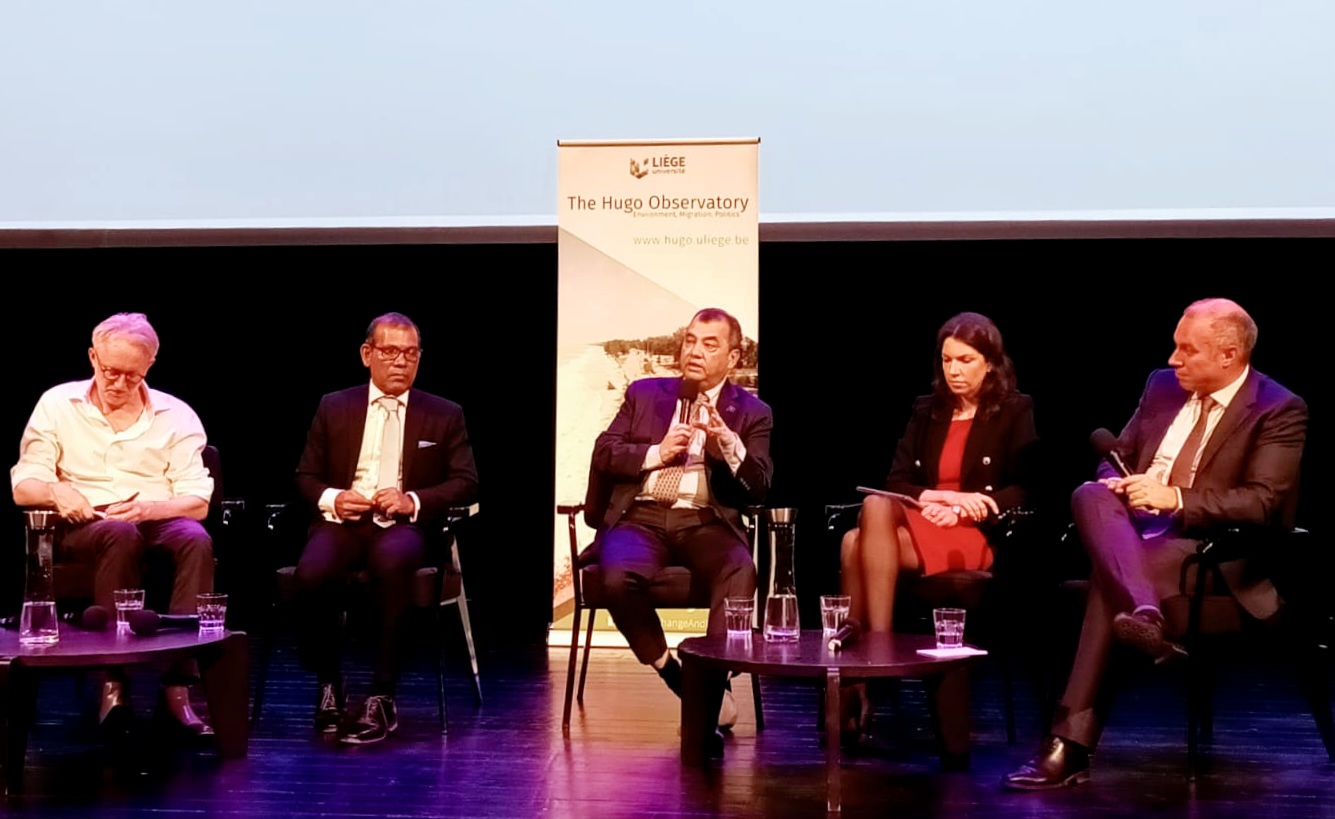
DHAKA, July 10, 2024 (BSS)-Environment, Forest and Climate Change Minister Saber Hossain Chowdhury has said climate justice is crucial in addressing the global climate crisis.
He made the remark while speaking as a panelist at the panel discussion titled ‘Colonising the future: climate justice, democracy and migration governance’ at the opening session of the Second Conference of the Environment and Climate Mobilities Network (ECMN) held in the Liège city of Belgium, on Tuesday evening, according to a message received here today.
Saber Hossain underscored the need for international collaboration and solidarity in tackling the complex issues of climate-induced migration and environmental degradation.
Emphasising the issue of climate justice, he said although Bangladesh is one of the least contributors to global carbon emissions with 0.5 percent, it is one of the most climate vulnerable countries in the world.
The environment minister highlighted the steps taken by Bangladesh, under the leadership of Prime Minister Sheikh Hasina, to deal with climate change impacts.
He said climate change is an existential threat to Bangladesh as it is predicted that 17 percent of the country’s coastal area would go under sea water by the end of the century, while about 40 million people will be displaced if sea level rises by one metre.
Secretary General of the Climate Vulnerable Forum and former President of the Maldives Mohamed Nasheed spoke as a panelist.
Belgian political scientist and researcher Francois Gemenne moderated the panel, while historian and author David Van Reybrouck made the keynote presentation.
Sandrine Dixson-Declève, co-president of the Club of Rome and Executive Director of Earth 4All; and Katarína Cséfalvayová, Director of the Institute for Central Europe; also spoke as panelists.
Bangladesh Ambassador to Belgium, Luxembourg and Head of Mission to the EU, Mahbub Hassan Saleh, and other embassy officials were present on the occasion.
The panelists highlighted the North-South divide, the need for more meaningful measures in tackling climate change, rebuilding trust and a fairer, more democratic and inclusive international governance.
Bangladesh’s frontline role in COP negotiations, particularly on loss and damage, were appreciated by the panelists.
The panelists also spoke about the need for reforming the global financial and governing mechanisms, with Minister Saber Chowdhury stressing that climate change is a litmus test for multilateralism.